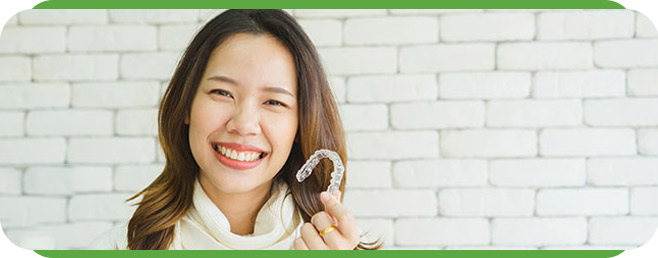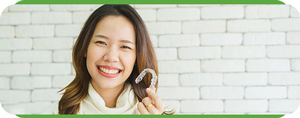Sleep Apnea Mouth Guard
If You Are Looking For Ways to Protect Your Teeth From the Effects of Grinding While Sleeping, Please Call Koala® Center For Sleep & TMJ Disorders. We Can Help You Find a Comfortable Appliance That Will Suit Your Needs.


Table of Contents:
What is Obstructive Sleep Apnea (OSA)?
What are the side effects of Obstructive Sleep Apnea (OSA)?
How do I treat my Obstructive Sleep Apnea (OSA)?
What are the pros and cons of wearing a sleep apnea mouth guard?
Obstructive sleep apnea (OSA) is a sleep disorder where a person will stop breathing periodically throughout the night. This sleep disorder develops from a physical obstruction in a person’s airway. When a person is experiencing obstructive sleep apnea, it typically lasts for around ten seconds at a time and is often followed by a snort, gasp, or some sort of choking sound – this is because the person’s body is fighting to continue to breathe.
When a person sleeps, the muscles in the body relax so that they can begin to repair themselves and keep a person healthy and active each day. However, muscles in the mouth and throat will also relax during sleep, and for some people these muscles will relax and end up falling back into the upper airway and eventually block the flow of oxygen.
When a person stops breathing during the night, their brain will respond by partially waking up and sending signals to work harder to get past the blockage, to the respiratory system.
There are many side effects to sleep apnea. If a person does not seek treatment for sleep apnea, the side effects may include:
– High blood pressure
– Irregular or slow heart beat
– Heart disease
– Heart attack
– Stroke
– Increased risk of diabetes
– Death
Before a doctor can determine or recommend any treatment options, a person must first complete a sleep study to help determine the severity of the symptoms. This is rather important because the severity of the symptoms can have a direct influence on the therapy that is recommended.
The most common form of therapy for obstructive sleep apnea is a continuous positive airway pressure (CPAP) device. This device blows a steady stream of pressurized air through a mask and into the respiratory system of the patient. This form of therapy is often the first recommended treatment for patients who have a moderate to severe case of sleep apnea.
For patients who have a mild to moderate case of sleep apnea, a dental device, also known as a sleep apnea mouth guard, will often times be the recommended therapy.
There are many pros and cons of wearing a sleep apnea mouth guard, and for most people – the pros, most definitely, outweigh the cons. Some of the pros include:
– Many patients find that dental devices are comfortable and tolerable to wear during the night
– Patients who are utilizing the CPAP will often times complain of having a dry, itchy nose. This is due to the air pressure drying out their sinuses. Sleep apnea mouth guard does not create this problem.
– There is far less equipment during sleep, which is often times Top for those people who are very active movers.
– It is smaller and more compact – making it easy to travel with
Some of the cons that have been expressed by patients include some of the following:
– Pain, Soreness or tension in the jaw
– Sore teeth and/or gums
– Excessive saliva or dry mouth
– Possible damage or change to jaw bite/position
– Possible loosening of any dental restorations
If you are concerned about you possibly having sleep apnea – then it is time for you to contact the sleep doctors at Koala® Center For Sleep & TMJ Disorders. Talk to us about the Top treatment option for sleep apnea, the oral appliance therapy for sleep apnea.

Additional Services You May Need
▸ KoalaKIDZzz®
▸ Sleep Apnea
▸ Snoring
▸ TMJ Disorder
▸ Fatigue
▸ Sleep Disorders
▸ Weight Loss
▸ CPAP Alternative
▸ Oral Appliances




